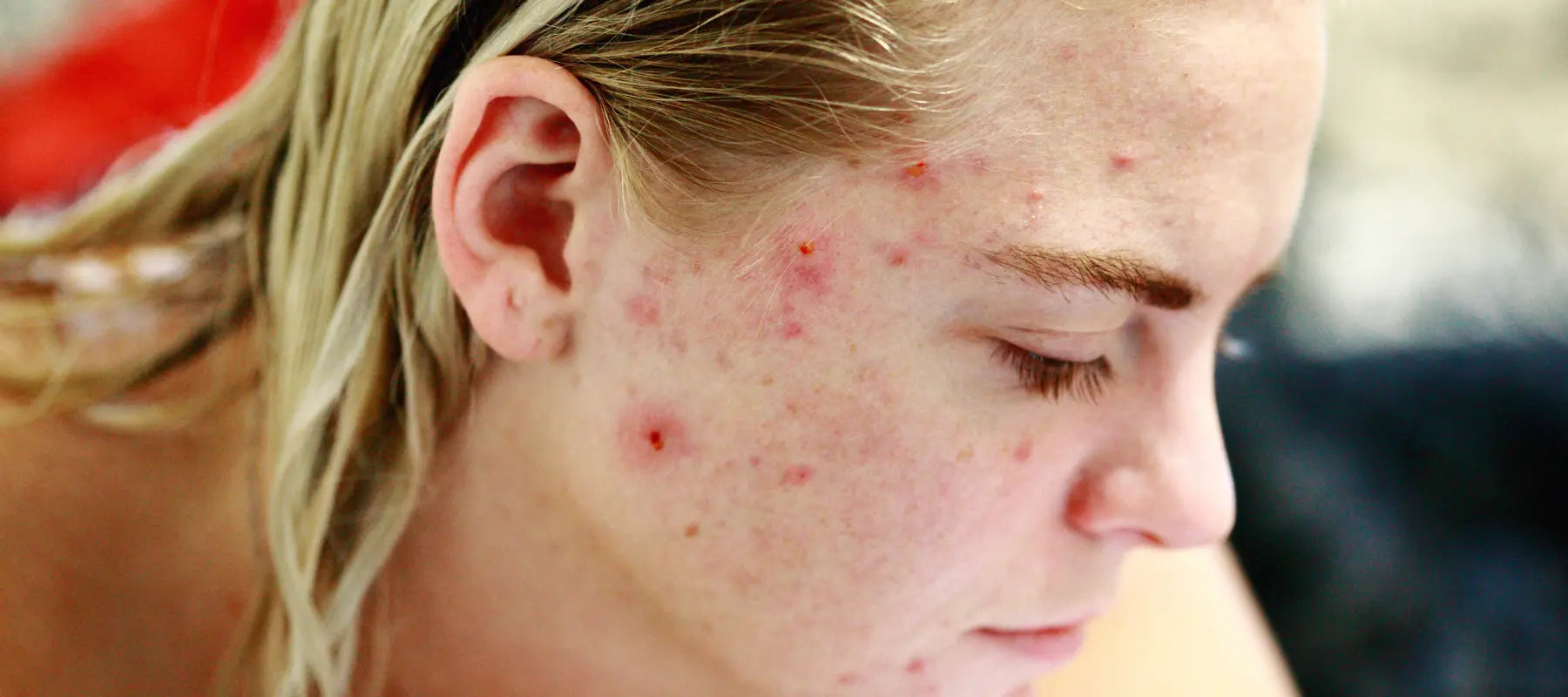
Acne Conglobata: Meaning, Causes, Treatment
Introduction
Acne conglobata is a severe and uncommon form of acne that can significantly impact one's physical and emotional well-being. Understanding its nature, causes, and effective treatment options is crucial for those facing this challenging skin condition.
What is acne conglobata?
Acne conglobata is a severe type of acne where big, painful lumps form under the skin. It can cause deep abscesses and scarring, making it challenging for those dealing with it.
How to identify acne conglobata?
Identifying acne conglobata involves recognizing specific symptoms and characteristics associated with this severe form of acne. Here are key aspects to consider:
1. Nodules and cysts
In acne conglobata, large and interconnected bumps form beneath the skin. They are painful and can go deep into the tissue. Cysts, filled with pus, may also develop, making the condition more severe.
2. Interconnected lesions
Unlike less severe forms of acne, acne conglobata is identified by lesions that connect. Nodules and cysts can merge, creating larger, more widespread areas of inflammation on the skin.
3. Location of lesions
Acne conglobata usually appears in areas rich in sebaceous glands like the face, chest, back, and buttocks. Its widespread presence across multiple body areas sets it apart from localised acne forms.
Also read: Skin Lesions: Meaning, Types, Treatment, More
4. Pain and tenderness
The nodules in acne conglobata are often tender and painful to touch. This discomfort distinguishes it from milder forms of acne.
5. Scarring
Due to the depth and severity of the lesions, acne conglobata frequently leads to scarring. The healing process may result in atrophic or hypertrophic scars, further impacting the skin's appearance.
If you suspect you may have acne conglobata or experience severe and persistent acne symptoms, seeking professional medical advice is crucial for an accurate diagnosis and appropriate treatment plan.
The leading acne conglobata causes
The primary acne conglobata causes are:
1. Hormonal fluctuations
Hormonal imbalances can make acne conglobata worse. Higher testosterone levels stimulate sebaceous glands, causing too much oil (sebum) and leading to deep, painful bumps.
2. Sebum overproduction
Sebaceous glands can produce excess sebum. It is an oily substance that lubricates the skin. Excessive production of sebum clogs pores, which facilitates the formation of acne conglobata's characteristic nodules, cysts, and interconnected lesions.
Also read: How to control sebum production on face: Our top tips
3. Environmental factors
Exposure to certain environmental factors can trigger or worsen acne conglobata. Excessive humidity, pollution, and exposure to specific chemicals at work can all lead to skin irritation and the development of severe acne lesions.
4. Bacterial infection
The presence of Propionibacterium acnes, a bacterium that normally resides on the skin, can contribute to the inflammatory response in acne conglobata. Bacterial colonisation within blocked pores can lead to the formation of painful and persistent nodules.
Acne conglobata treatment: Our top tips
The top acne conglobata treatment tips encompass a multifaceted approach:
1. Spot treatment
When dealing with acne, pinpoint each bump with targeted spot treatments. Choose solutions like the Clearing & Calming Acne Face Wash containing salicylic acid. These ingredients work effectively to reduce inflammation and accelerate the healing process, contributing to clearer and healthier skin. Precision in treatment enhances overall efficacy in managing acne-related concerns.
2. Gentle cleansing
Adopt a gentle cleansing routine for your skin. Use a mild, non-comedogenic cleanser like the Clearing & Calming Acne Face Wash to avoid irritation.
Follow it up with the application of a niacinamide moisturiser like the Acne Care & Healing Gel Moisturiser with Tea Tree & Cica. Harsh cleansers can remove essential oils. This can make the condition worse. Prioritise a balanced approach to cleansing for healthier, happier skin.
3. Oral medications
For severe cases, dermatologists may suggest oral medications like antibiotics, corticosteroids, or isotretinoin. These medications tackle underlying causes by addressing bacterial infections. They reduce inflammation and control sebum production. This systemic approach offers relief for the heightened severity of acne conglobata.
4. Intralesional corticosteroid injections
Deal with the pain of nodules by seeking targeted help. Dermatologists can give corticosteroid injections directly into painful bumps. It reduces inflammation and speeds up healing for those specific lesions.
5. Isotretinoin therapy
If you need an effective solution, think about isotretinoin therapy. It's for severe cases due to potential side effects but significantly reduces sebum production and prevents new lesions. Always prioritise personalised care by consulting with a dermatologist to ensure the most effective management of acne conglobata.
In conclusion
Effectively managing acne conglobata involves a holistic approach to addressing symptoms and root causes. Consulting a dermatologist is crucial for a personalised treatment plan. Combining spot treatments, gentle cleansing, and oral medications enhances the outlook for individuals dealing with this challenging skin condition.
FAQs:
1. What is acne conglobata?
Acne conglobata is a severe form of acne, marked by interconnected nodules beneath the skin, leading to abscesses, scarring, and persistent symptoms.
2. How do I identify acne conglobata?
Look for large, interconnected nodules on the face or back. Consult a dermatologist for a definitive diagnosis.
3. Can acne conglobata cause scarring?
Yes, due to its depth and severity, acne conglobata frequently leads to scarring, impacting the skin's appearance.






















































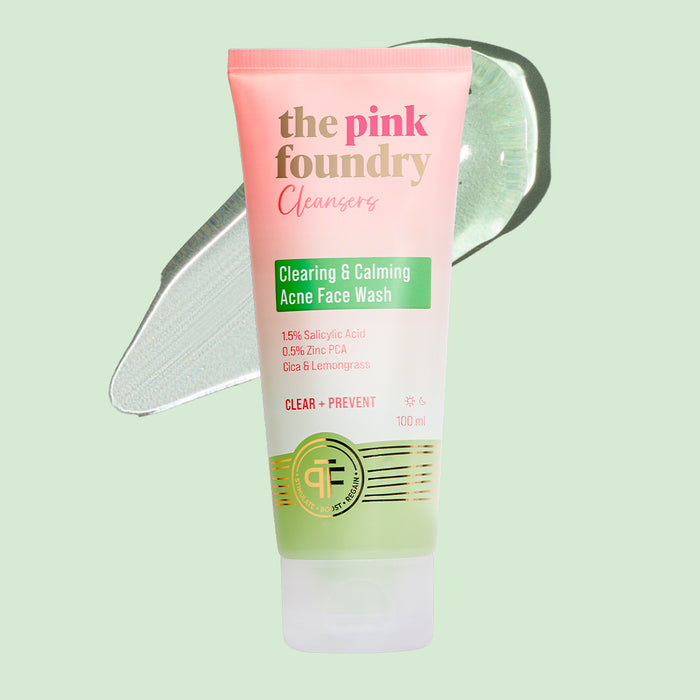


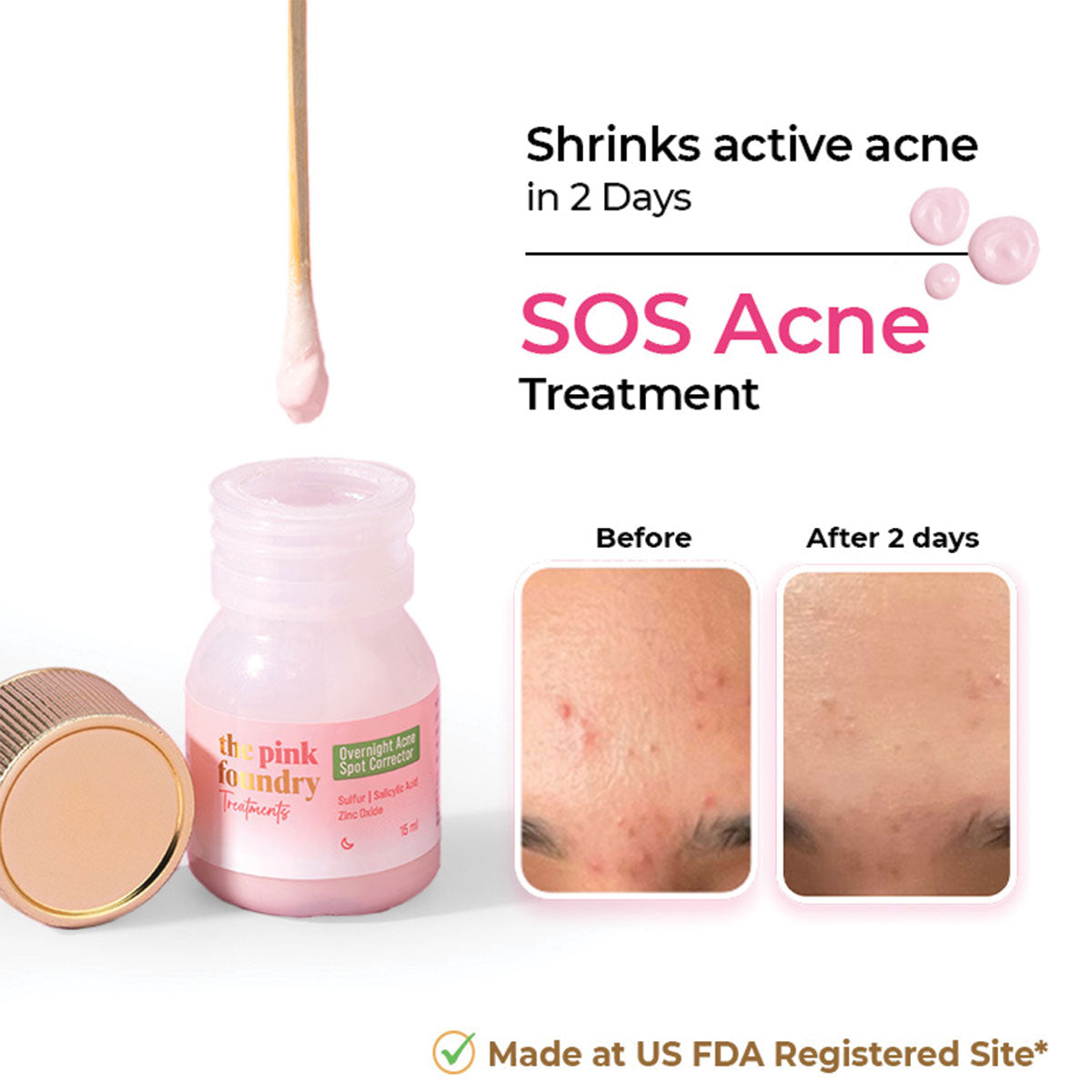
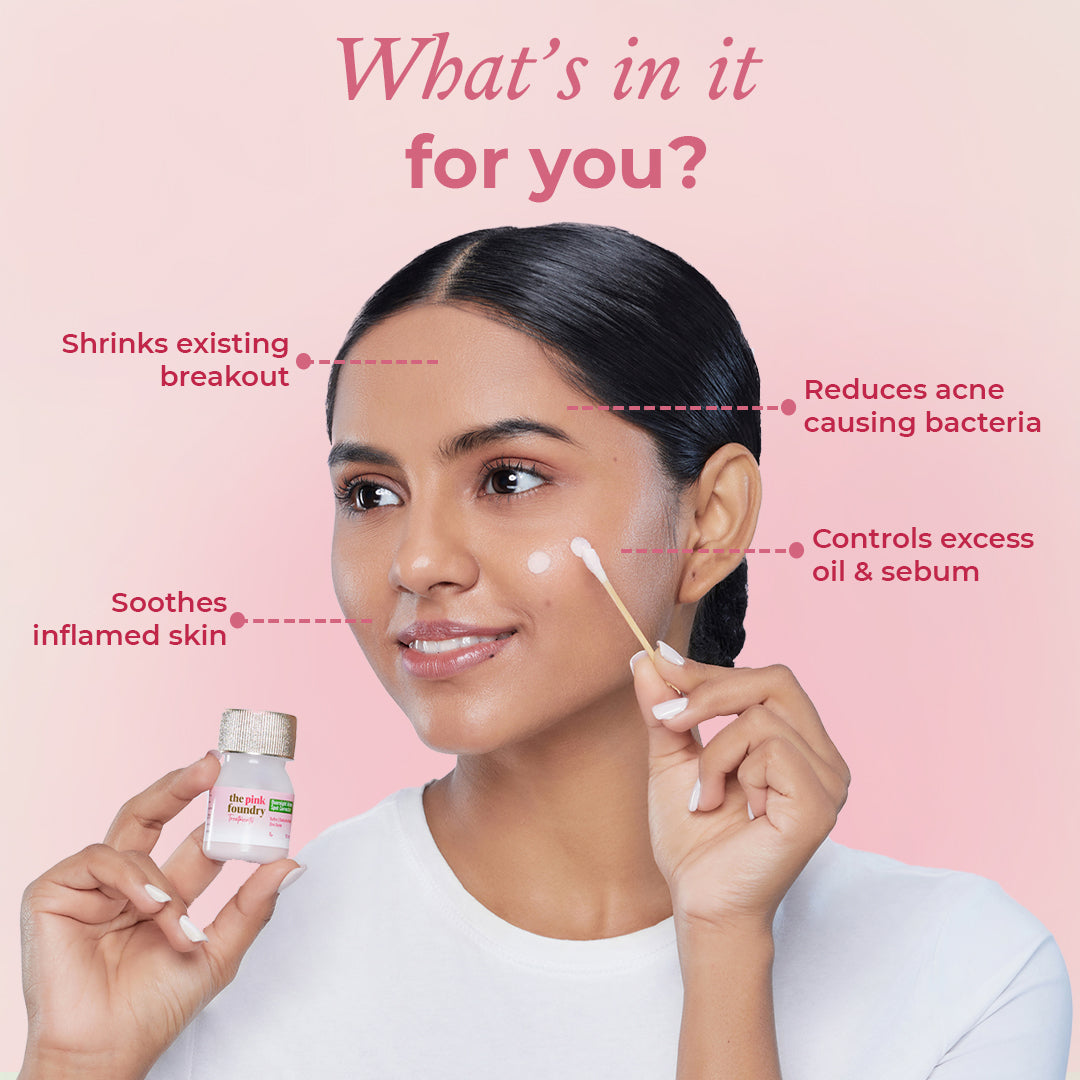


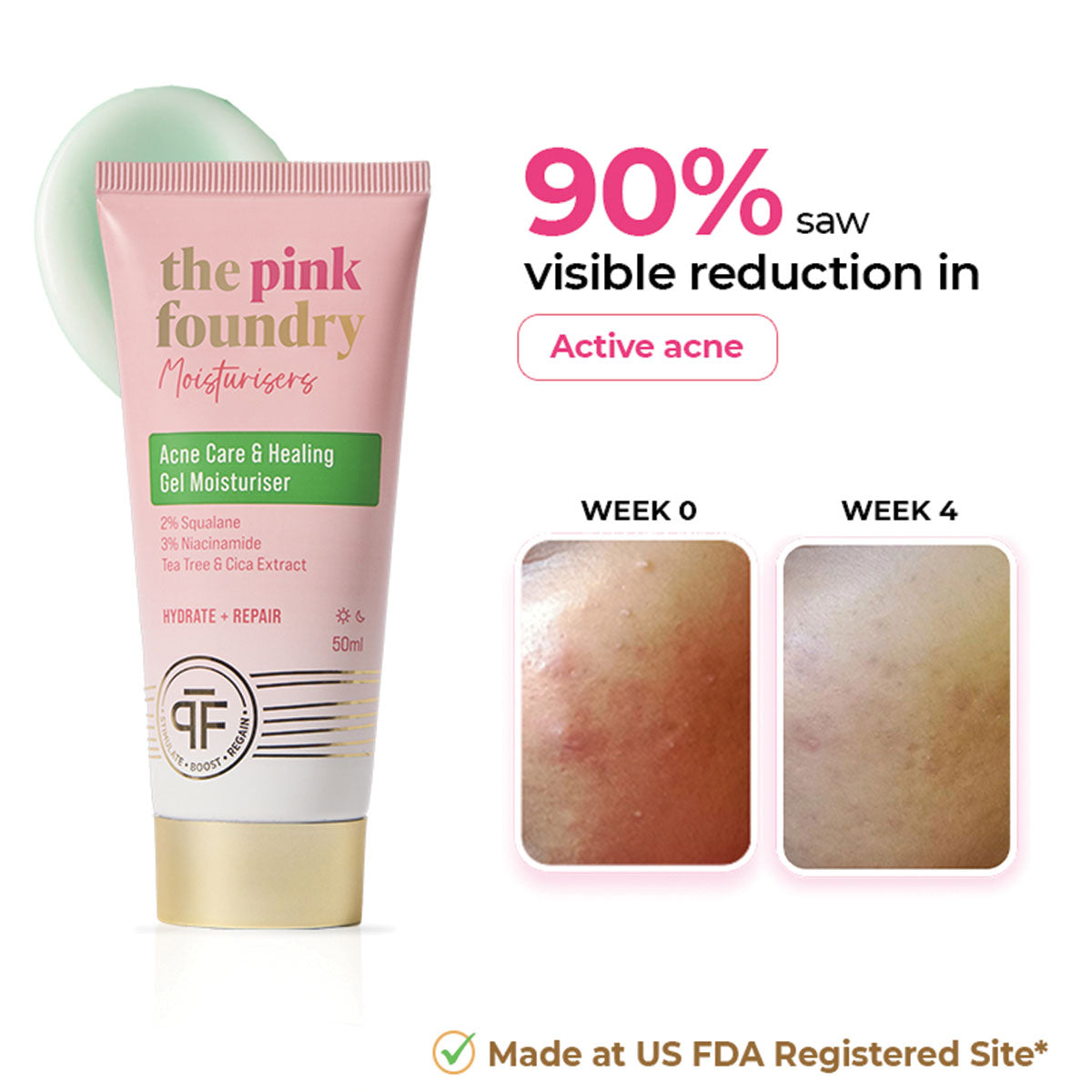
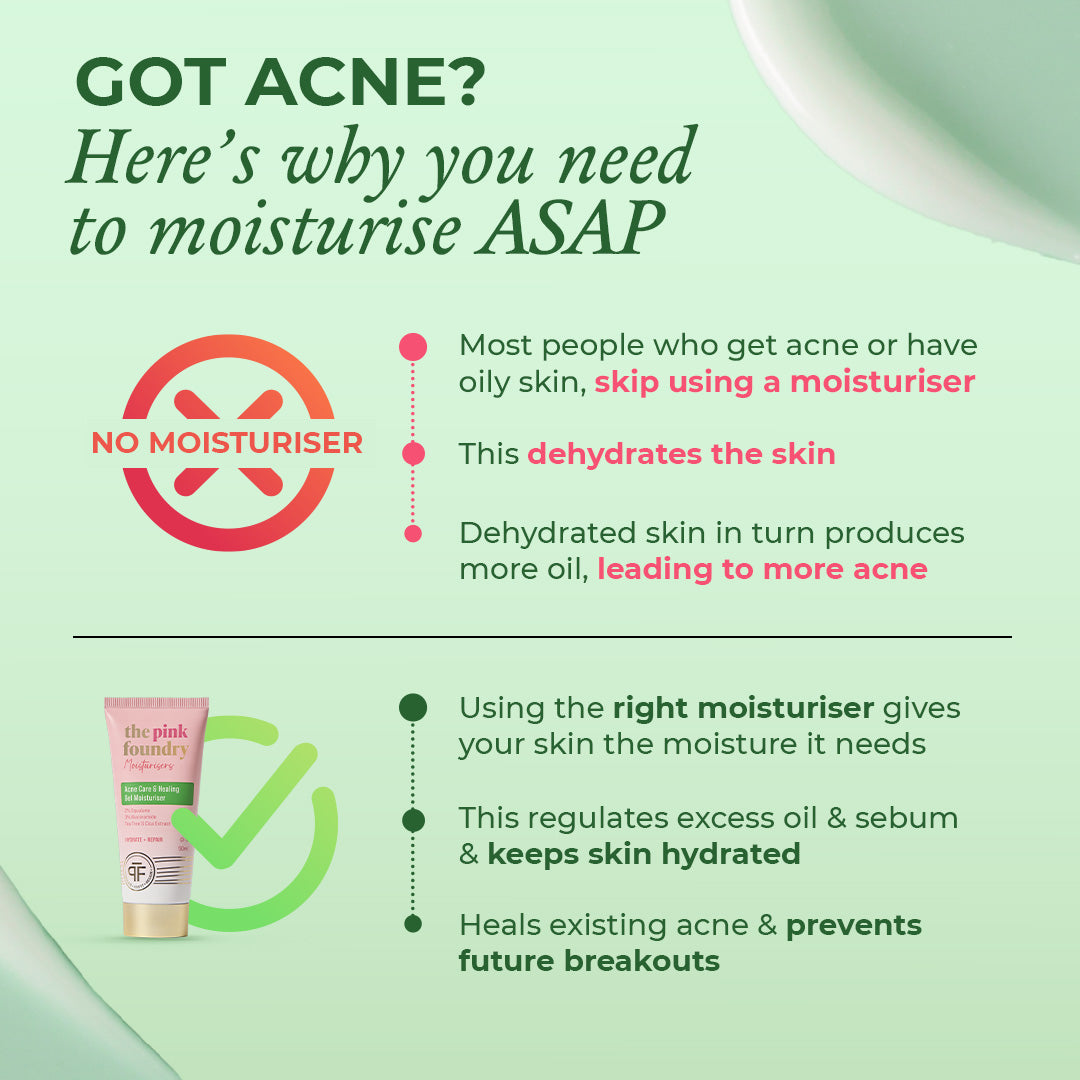










Leave a comment
This site is protected by hCaptcha and the hCaptcha Privacy Policy and Terms of Service apply.